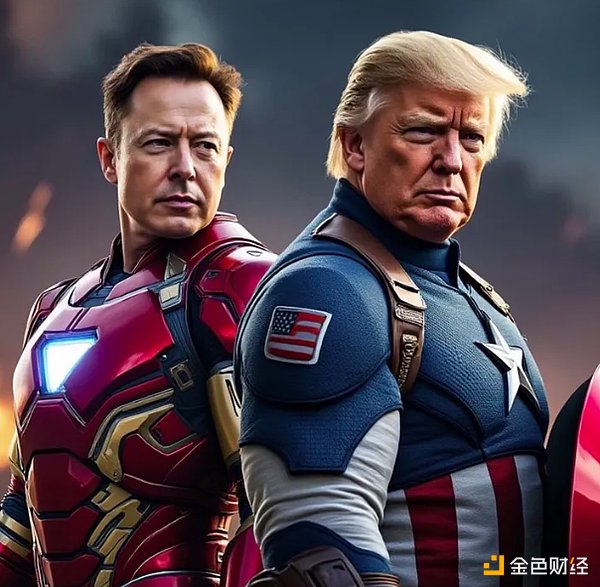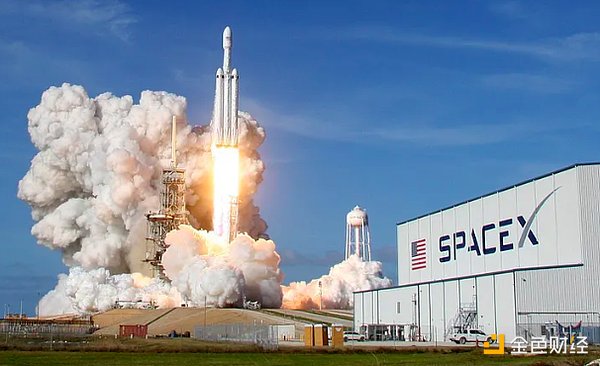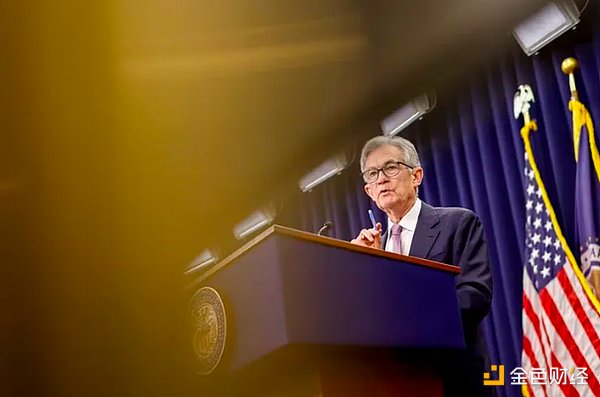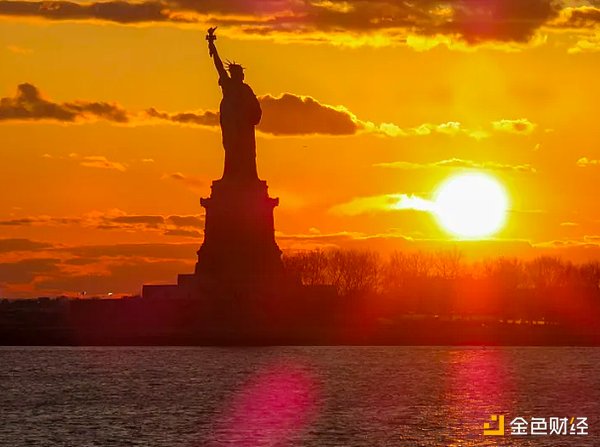Author: Zeke, a researcher at YBB Capital
1. What doesn't kill me makes me stronger
"I'm back, Bitches!" - This is for all the doubters and those who rejoice in my downfall.
The first president in history to be convicted, a "tech tycoon" who flirted with disaster by claiming that humans will be connected to brain chips and sent to Mars, and a group of disgruntled former allies and enemies are all key figures in the Republican Party's 60th US presidential election. If we start with Trump, the internal dynamics of this team seem fragile, and the two core figures - Elon Musk and JD Vance - have publicly criticized his policies many times. Trump himself has often publicly opposed Bitcoin since 2019, calling it a Ponzi scheme and a money laundering tool.
But as the saying goes, "everything is for your own use", people and things, as long as there is a point of intersection of interests, differences can be temporarily ignored. For Trump, this is a life-and-death battle, a battle for family honor; for Musk, it is a battle for the future of mankind; for Vance, it is a war to defend the old American dream and the new Silicon Valley. All obstacles converge here: the Democratic Party.
Since the first round of voting in Pennsylvania, the balance of victory and defeat has begun to tilt. The Democratic Party has replaced the baton, summoned all the old politicians in the party, won over Hollywood stars, invested heavily in media publicity, and tried every means, but still could not prevent the Trump team from winning.
On November 6, the day the voting ended, contrary to the mainstream media's prediction of the closest election results in history and the slight lead in Harris polls, the Republicans swept seven battleground states and ended the battle in half a day. Trump eventually defeated the Democratic Party's fierce offensive with an overwhelming advantage. One of the Republican Party's trump cards is the silent majority - those oppressed by illegal immigrants and extreme left extremism. These people did not express their opinions on social media, but they cast the right vote. The man wearing the red "Make America Great Again" hat returned to the White House.

In this magnificent US election, I understand everyone's motivation to stand with Trump. But why did he choose Bitcoin? A common explanation is that 13% of the US population owns cryptocurrencies, and Trump needs to cater to these voters. According to his own reasoning, Bitcoin can be used to repay the $35 trillion national debt and replace gold as a new strategic reserve. The first reason sounds a bit far-fetched, and the second reason sounds a bit far-fetched. In order to convince myself, I consulted a large number of articles and videos from traditional financial bloggers since the 6th. I conclude that Bitcoin intersects with the United States led by Trump and Musk in several aspects: energy, opposition to the Federal Reserve, opposition to the Democratic Party, anti-big government ideology, and as a new symbol of the old American dream.
2. Energy
Politicians' true motivations are often hidden behind exaggerated excuses. Let's revisit one of the strangest aspects of Trump's vision for the future of Bitcoin: In June of this year, Trump posted on Truth Social late at night, "Bitcoin mining may be our last line of defense against CBDC... We want all remaining Bitcoin to be made in the United States!!! This will help us dominate the energy field."
There are many similar remarks, such as requiring all remaining Bitcoin to be labeled "Made in the USA" and positioning the United States as the capital of crypto. The subtext of these remarks seems to be to show solidarity with supporters, resist the Democratic Party's suppression of cryptocurrencies, oppose central bank digital currencies, and reject Bitcoin produced in Europe or Asia. However, when we look closely at these remarks, it is clear that whether Bitcoin is labeled "Made in the USA" has little to do with the above points. Trump's real goal is energy development, which can be seen from the fact that he mentioned energy at the end of the sentence.
The main supporters of Trump's campaign include CEOs of energy transmission companies such as Kelcy Warren of Energy Transfer, Harold Hamm, founder of Continental Resources, Jeff Hildebrand of Hilcorp Energy, Timothy Marvin Dunn of CrownQuest Operating, and Koch Industries, the largest oil group in the United States. Funds from the oil industry are the main source of funds for Trump's re-election campaign, and the Democratic Party's promotion of renewable energy has greatly hindered the development of these traditional oil industries. Trump's intention is to intensify the use of fossil fuels and use these energy sources to generate electricity, with the goal of increasing drilling and production.
Musk's dream of Mars is also closely related to the energy field. What are the obstacles to landing on Mars? First of all, energy, followed by rocket launch costs, AI robots and communication systems. These four aspects correspond to Musk's careers: Tesla electric cars, SpaceX, Tesla robots and Starlink. However, the biggest obstacle to Mars immigration now becomes the government, and most of the car donations behind the Democratic Party come from traditional automakers such as General Motors and Ford. The Democratic Party promotes clean energy policies and electric vehicle subsidies, which naturally exclude Tesla. The US moon landing program launched during Trump's first term awarded a $146 million order to SpaceX. However, after Biden took office, NASA reallocated the contract and only gave SpaceX $9.4 million, while most of it went to Jeff Bezos' Blue Origin. More importantly, the Democratic government has been putting pressure on SpaceX through environmental regulations, with ridiculous reasons, such as rockets that may harm marine life and ecosystems.
Starlink played a vital role in the Ukrainian war, but the service fee has not been paid so far. Musk, who originally planned to shut down Starlink in Ukraine, continued to provide services under the pressure of the Democratic Party.
In the final analysis, Trump is Musk's only viable option. Energy policy and space contracts are likely to be the key bargaining chips in this cooperation. In addition to reviving fossil fuel vehicles, everything is consistent with Trump's anti-extreme environmental policies, making the two a match made in heaven.
In addition, energy plays a vital role in the development of artificial intelligence. I discussed in last year's article "Preview of Potential Tracks: Decentralized Artificial Intelligence Computing Market" that computing power is the oil of the future. If this oil is divided into two parts, it is electricity and chips, and "Tokens per dollar per watt" represents the productivity of the future. Developing the energy industry will ensure that the United States is always at the forefront of artificial intelligence technology, which is consistent with the needs of the new forces in Silicon Valley behind Vance. Therefore, Bitcoin mining is just a smokescreen for Trump. The label of "Made in the USA" and the boycott of CBDC or foreign mining are not essentially connected. Trump may not fully understand Bitcoin, nor does he need to understand it, as long as he knows that people like it and it consumes energy.

3. Anti-Fed
Mark Zuckerberg, who was once a die-hard fan of the Democratic Party, immediately blocked Trump's social media account after Trump left office to show his loyalty. Trump has repeatedly stated that if he has the opportunity to be re-elected, he will put Zuckerberg in jail. However, this blind loyalty did not lead the Democratic Party to make any compromise on the Libra issue. Zuckerberg may not realize that this is actually a declaration of war on the Federal Reserve, the largest private bank in the United States. The collapse of Meta caused its stock price to plummet and the Metaverse became a bubble, but compared with previous politicians, Zuckerberg is still lucky.
Historically, only two presidents have tried to challenge the Federal Reserve: Lincoln, who tried to take back the right to mint coins, and Kennedy, who wanted to issue silver-backed currency. Both ended in tragedy. But Musk and Trump are still determined to win. During his first term, Trump publicly expressed his dissatisfaction with the Fed's interest rate hikes, criticizing the Fed's independence and inability to influence monetary policy. In his second term, he hoped to directly fire Fed Chairman Powell. Musk tried to use Bitcoin to pay for Tesla in the last round of crypto cycles, but later claimed that Bitcoin was too damaging to the environment and suspended its use. Of course, I prefer to believe that the main intention of using Bitcoin is to challenge the US dollar, and the real reason for the suspension may have nothing to do with environmental issues.
The common point between Trump, Musk and Bitcoin is the "no pain, no gain" mentality. Trump is the boldest politician, Musk is the boldest entrepreneur, and Bitcoin is the boldest currency. Perhaps there is nothing in the world that they are unwilling to challenge. On November 8, a senator sent a tweet, and Musk responded with a ? emoji, expressing his full support. The post read: "The Executive Branch should be led by the President. This is the design of the Constitution." He also added the hashtag #EndtheFed, adding: "The Federal Reserve is one of many examples of where we have strayed from the Constitution. This is another reason why we should #EndtheFed."
Let's look at Trump's promises about Bitcoin: using Bitcoin to repay the national debt, establish a strategic reserve of Bitcoin, and eventually surpass gold. Anyone who knows a little arithmetic knows that this is ridiculous. The US government's Bitcoin accounts for only 1% of the total supply, which is not even enough to pay a week's interest on the national debt. But what is the message behind this? Trump wants to seize monetary power, and Bitcoin, as the leading mocker of fiat currency, is the perfect weapon for his anti-Fed campaign. By tapping into the mood of the working class and his influence over the Democratic Party, Trump can challenge the Federal Reserve. If he succeeds in bringing down the Federal Reserve, he will not only be the most powerful US president in decades, but also the only president in American history to hold complete control.

4. Oppose big government
I will skip the anti-Democratic Party part here, because it is described in more detail in Wang Chao's article "33 Years of Crypto War: From Biden to Biden". Let's focus on the concept of big government and small government, especially the relationship with the big government ideology of the Democratic Party and the small government position of the Republican Party.
Thomas Jefferson once set a rule for the young United States: "The best government is the smallest government". This small government concept has long been the core political position of the Republican Party, advocating low taxes, minimal regulation, and emphasizing personal freedom and market mechanisms. In contrast, the Democratic Party tends to favor big government, high taxes, and strong regulation, emphasizing social equity and public services. The anarchism and small government ideals advocated by cryptocurrencies are actually very similar. Both tend to favor free markets and personal freedoms, but small government supporters believe that maintaining a minimal government can preserve these freedoms.
As cryptocurrencies merge with the United States, we may see the Republican Party push the on-chain landscape toward a small government and attack the Democratic Party again. Over the past four years, the Democratic Party has evolved into a force that exploits American citizens in the name of extreme left ideology, leading to an unprecedented moral hijacking of the United States. We have witnessed that government intervention, which was supposed to be aimed at solving social injustices, has evolved into a thorough recognition of extreme movements: rainbow flags, robbery, drug use, illegal immigration, etc. are commonplace. Immigrants even get hotel accommodations and shopping cards, and their welfare benefits are even better than those of citizens. The Democratic Party's goal is clear: by exploiting and brainwashing citizens, their goal is to maintain power. Even if they lose some votes from legal citizens, they can replace them with votes from illegal immigrants and extreme leftists.
Trump is committed to cultivating a compliant crypto world that allows citizens to participate in financial activities more efficiently and freely. The electoral fraud he despised could eventually be solved through blockchain, allowing the Republican Party to win back the lost four years and consolidate its position in 2028.

5. New symbol of the old American dream
The representative of the so-called "new American dream" is Kamala Harris, the first female vice president of the United States and a representative of the immigrant elite. She has African and South Asian ancestry and fully meets the requirements of the Democratic Party's "political correctness". Harris embodies the "American dream" of immigrants in the era of American multiculturalism and represents an open and inclusive cultural ideology. The representative of the "Old American Dream" is JD Vance, a working-class man from the "Rust Belt" who later became a soldier, writer and businessman, a potential vice presidential candidate and a leader of the New Silicon Valley movement. Vance represents the early American ideal that anyone can get rich through hard work, courage, creativity and determination, a belief in democracy, rights, freedom, opportunity and equality.
As Trump's running mate, Vance's qualifications are perfectly aligned with Trump. Bitcoin, or cryptocurrency, is perfectly intertwined with the "Old American Dream". The essence of Proof of Work (PoW) is that the more you put in, the more you get out. In the blockchain world, miners are completely equal. This vision of the American Dream is particularly important in developing countries, where people can use stablecoins or even Bitcoin for transfers and payments, bypassing banks and unreliable government-backed currencies. They can also find freedom and opportunity through DeFi or on-chain enterprises. If Trump keeps his promise, Web3 may become the "American Dream" for the global crypto community.
6. Conclusion
Nakamoto once wrote to BM (founder of EOS), saying "If you don't believe me, or can't understand me, then I don't have time to convince you, sorry." We have passed the era when we need to explain what Bitcoin is and whether it is a Ponzi scheme. 16 years have passed, and it has never failed. It is there, across the Atlantic, right next to you and me.
I don't mind the Americanization of Bitcoin. Any country, institution or individual can buy Bitcoin-cryptocurrency is essentially freedom. Controlling tokens is not the same as controlling the network. Everything that happens on the Bitcoin blockchain is still decentralized.
However, I do not like that cryptocurrency and politics are constantly intertwined. First, I don't fully understand American politics. Second, as an industry that integrates finance and emerging crypto technologies, we have been discussing politics for most of the past year, which is abnormal for any developing technology industry. Bitcoin and the Republican Party are on the same front in this election and benefit from each other, but this is not the case in the broader cryptocurrency field.
 Edmund
Edmund
 Edmund
Edmund Edmund
Edmund Huang Bo
Huang Bo Jasper
Jasper Clement
Clement dailyhodl
dailyhodl decrypt
decrypt Coindesk
Coindesk Cointelegraph
Cointelegraph Cointelegraph
Cointelegraph